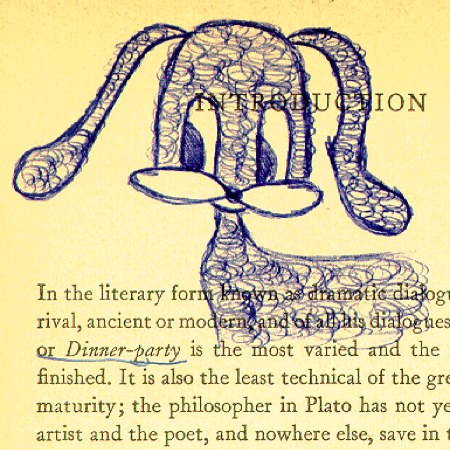Listening To Students
Stacey Mason

Photo: Catherine C. Marshall
Gene Golovchinsky suggests that we listen closely to students if we want to understand eBooks. Golovchinsky reports on the story of a teacher who observed students’ use of eReaders, and offers students’ opinions that printed textbooks allow for better annotation.
Wojcicki cites an Internet analyst who offers the opinion that the students “…are just wrong. … just plain wrong. They don’t know because they can’t even conceptualize what is coming.” The implication is that these devices will in fact revolutionize the textbook market, but the students are not able to understand that.
Students do understand their own work practices and can offer a better understanding of annotation practices. This understanding should lead to better reading and annotating software. However, the unnamed internet analyst is probably right too. Golovchinsky writes,
Electronic reading devices will only be successful if their designers pay attention to what students do with textbooks, and design tools to support and augment their work practices. If that is done well enough, then the analyst’s prediction will be correct; if, however, the hardware and software combination fails to support active reading well, then students will continue to reject the medium as inadequate to their task.
It’s important to remember that learning doesn’t only come from the text. Several of my courses had online or software textbooks. These “textbooks” were not only texts, but also practice quizzes, linked references, and platforms to connect with other students. If these activities are incorporated into textbooks for platforms like the iPad (perhaps as apps, perhaps as part of a larger program for handling works like this), the analyst’s prediction will be true, regardless of the annotation capabilities of the software.
Of course, this isn’t an excuse for the lack of decent active reading programs available, but being able to highlight or mark up a page is not the only thing keeping students from accepting eBooks. The real issue is that eBooks are still trying to limit themselves to imitating paper.
